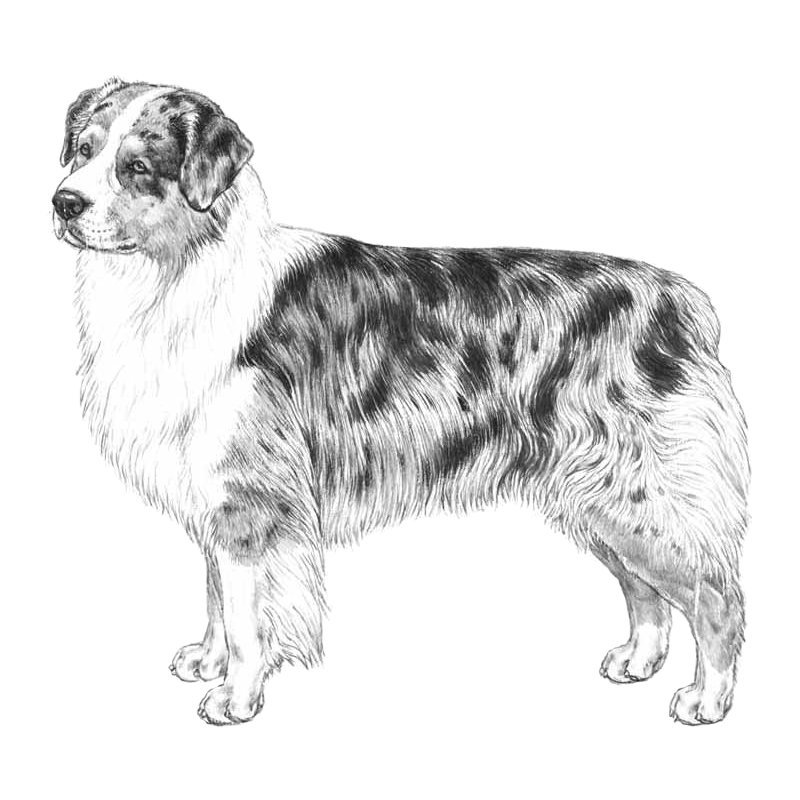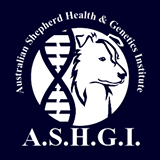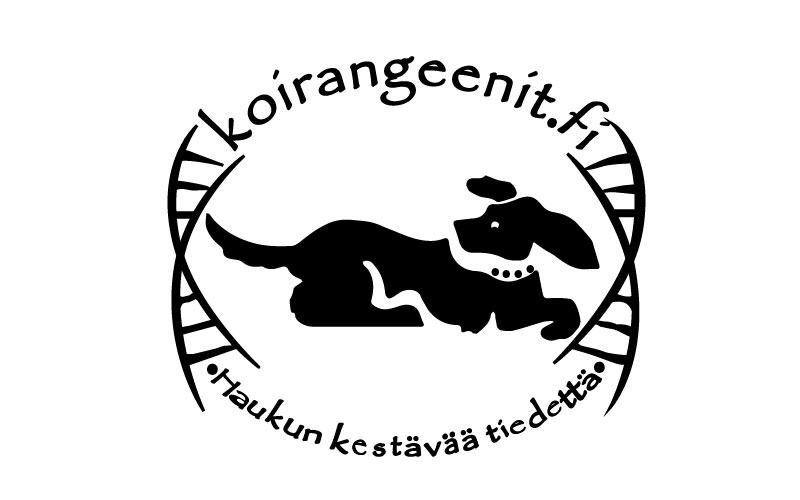Australian Shepherd
- international breed collaboration
- swedish insurance data
- australian shepherd
- health surveys
- australia

- Berger australien
- Perro pastor australiano
- Australischer Schäferhund
- National kennel clubs and breed clubs (see, e.g. Breeding/Health Strategy Documents, below)
- Population-level statistics (see, e.g., Swedish Insurance Data, below)
- Research articles Breed club surveys
- Breed-specific information on rates of disease and death from Agria Pet Insurance (Agria Djurförsäkring) is available for many breeds.
-
A Survey of Australian Shepherd Breeding Practices and Genetic Diversity
-
(2018) K. Bennett-Wimbush1, J. Suagee-Bedore2, C.A. Sharp3
1The Ohio State University, 2 Sam Houston State University, 3 Australian Shepherd Health and Genetics Institute
-
(2018) K. Bennett-Wimbush1, J. Suagee-Bedore2, C.A. Sharp3
- 1999 Australian Shepherd Club of America (ASCA) Breed Health Survey
- 2017 ASHGI Longevity Survey with figures
- 2017 - The Australian Shepherd Longevity Survey -- Summary Data
- See ASHGI's Breeding Strategies articles.
The Australian Shepherd, commonly known as the Aussie, is a medium size breed of dog that was developed on ranches in the western United States. Despite its name, the breed was not developed in Australia, but rather in the United States where they were seen in the West as early as the 1800s.
Source: Wikipedia
Links to Breed Descriptions
View more videos on AKC's YouTube Channel
View more videos on SCC's YouTube Channel
See: The German Kennel Club (VDH) for information and video (if available).
(Hint: your browser should be able to Translate to English, at least for text (e.g., right click in Google Chrome or Internet Explorer).)
This and other breed videos are available in full length here.
Breed HISTORY PAGES: http://www.lasrocosa.com/history.html
Other Names for Breed
Country of Origin and Parent Breed Club
Country of origin: United States
Health and Well-Being
Some sources of health information include:
Breed-Specific Articles
 Get a GRIHP! on Australian Shepherds
Get a GRIHP! on Australian Shepherds
This article on Australian Shepherds is part of a series to highlight the Big Picture of health, welfare, and breeding and to help develop Globally Relevant Integrated Health Profiles (GRIHPs) for many breeds. See IPFD's Get a GRIHP! on Breed Health Initiative
See: Working Aussie Source -- Articles Library: Aussie Specific
Breed Standards
There are numerous breed standards.
The basis of breed/conformation shows is the judging of pedigree dogs against the 'Breed Standard', which is a picture in words that describes the range of features that are deemed appropriate for the breed.
Four of the major international standards are:
FCI (Federation Cynologique Internationale)
ASCA ( The Australian Shepherd Club of America )
Please note: The US AKC club’s standard is recognized by both the KC and FCI. It differs somewhat from the ASCA standard.
Breed-Specific Statistics
1. Swedish Insurance Data
2. Finland: FKC Database:Australian Shepherd: https://jalostus.kennelliitto.fi/frmEtusivu.aspx?R=342
3. Databázi Belgických a Australských ovčáků: Czech database includes Belgian and Australian Shepherds: http://kchbo.com/genealogie/index.php?topMenu=14&cat=14
Breeding/Health Strategy Documents
Health/Breeding Strategy Documents and Links:
The Kennel Club, UK: Breed Watch
2. Sweden: Breed-specific Breeding Strategies: (in Swedish) and/ or English summary
3. JTO - 2014-2018: https://www.australianpaimenkoirat.fi/images/pdf/JTO-APK-2014-2018.pdf
Health Surveys
The Australian Shepherd Health and Genetics Institute (ASHGI)
First printed in the Aussie Times, Jan-Feb 2002
ASHGI conducted a longevity-specific survey to elicit data which could help guide educational efforts and research support. The survey was limited to dogs which lived at least six months and died on or after January 1, 2000. The survey period was opened on June 1, 2017 and closed on October 7, 2017. The advice offered based on analysis of the collected data will be potentially helpful to guide decision making of breed managers and breeders.
Authors: C.A. Sharp & Liz Busquets
Breed-Specific DNA Tests:
Other Breed-Specific Webpages
HEALTH & BREEDING RESOURCES
 RESOURCE: The Australian Shepherd Health and Genetics Institute (ASHGI) is an independent breed health organization.
RESOURCE: The Australian Shepherd Health and Genetics Institute (ASHGI) is an independent breed health organization.
ASHGI HEALTH TESTING PROTOCOLS
A.S.H.G.I.'s “Coat Color Genes” is a reference chart in easy-to-download pdf format. It lists the various genes known to impact Aussie coat color, the different versions of the genes, and which combinations result in which colors or patterns. This charte is also available in translation to several other languages.
Aussie coat color reference is Lisa MacDonald’s “Field Guide to Coloration of Australian Shepherds” website, hosted by ASHGI.
A word from A.S.H.G.I.'s Lifeline Newsletter (August 2018) on DNA testing and screening for eye conditions in the Australian Shepherd ...
Subscribe: http://www.ashgi.org/join-email-contact-list
Quote

Health Matters
Many of the DNA tests available for Aussies examine genes associated with eye diseases and defects (cataracts, Collie eye anomaly, canine multifocal retinopathy 1, cone degeneration, and the progressive rod-cone degeneration form of progressive retinal atrophy.) Given all these tests, some people wonder why it is necessary to do regular eye exams. The tests tell us what the genes are, right? Yes, they do. But that that is only part of the picture.While the DNA tests are a valuable tool for breeders. They can help to reduce disease risk, prevent producing puppies who will have these conditions, and - over the long term - reduce frequency of these mutations in the breed. However, DNA tests do not tell us everything we need to know about a dog's risk for having or producing all hereditary eye diseases. The tests don't cover every eye disease found in Aussies, including iris coloboma and hypoplasia, distichiasis, persistent pupilary membrane, scleritis, and PHPV/PTVL, none of which presently have tests. Nor is there a test for the 30% of inherited cataracts not caused by the HSF4 cataract mutation.
Some of these diseases without tests can be detected in a puppy exam but others don't arise until later in life. All Aussie puppies should have a first eye check between 5 and 7 weeks of age, even pet puppies. If you don't check you may have missed something important and pet people may not realize they should notify you I something is wrong. Breeding dogs should be examined yearly or at least within a year prior to any breeding. Because having one or two copies of the HSF4 mutation is only a risk factor, detecting the dogs that actually get this type of cataract requires exams.
Do the DNA tests but eye exams are still a very important part of keeping our breed healthy.
Can you see at A.S.H.G.I provides an excellent overview of eye conditions in the Australian Shepherd.
AVCO - Blue Book 2018: Australian Shepherd: http://www.ashgi.org/wp-content/uploads/2018/08/2018-AVCO-Blue-Book-Aussie-pages.pdf
ACVO Blue Book 2019: Australian Shepherd
This website contains extensive information on working Aussies. " Dedicated to the preservation of the working Australian Shepherd, America's quintessential farm and ranch dog."
Articles Library: Aussie Specific
Breed-Specific Research
ASHGI: Current Research Studies
 Finland: Epilepsy: https://www.koirangeenit.fi/english/projects/ongoing-research-projects/neurological-diseases/epilepsy2/
Finland: Epilepsy: https://www.koirangeenit.fi/english/projects/ongoing-research-projects/neurological-diseases/epilepsy2/
Finland: https://www.koirangeenit.fi/rodut/rodut-a-b/australianpaimenkoira/
Australian Shepherd (10 -13 - 2020) Iiriscoloboma, Iirishypoplasia, Katarakta eli harmaakaihi (ei HSF4), Epilepsia
|
|
Breed Clubs
We are listing sites for breed clubs with health or other information that might be helpful. Follow links below.
USA: Australian Shepherd Club of America (ASCA)
United States Australian Shepherd Association (USASA), member of the American Kennel Club
Sweden: Svenska australian shepherdklubben
Finland: Australianpaimenkoirat ry
UK: Australian Shepherd Club of the UK
National Australian Shepherd Association
Germany: Club für Australian Shepherd Deutschland e.V.
Club für Australian Shepherd Deutschland (CASD)
Report Entry
 Donate
Donate


Recommended Comments
There are no comments to display.
Join the conversation
You can post now and register later. If you have an account, sign in now to post with your account.
Note: Your post will require moderator approval before it will be visible.